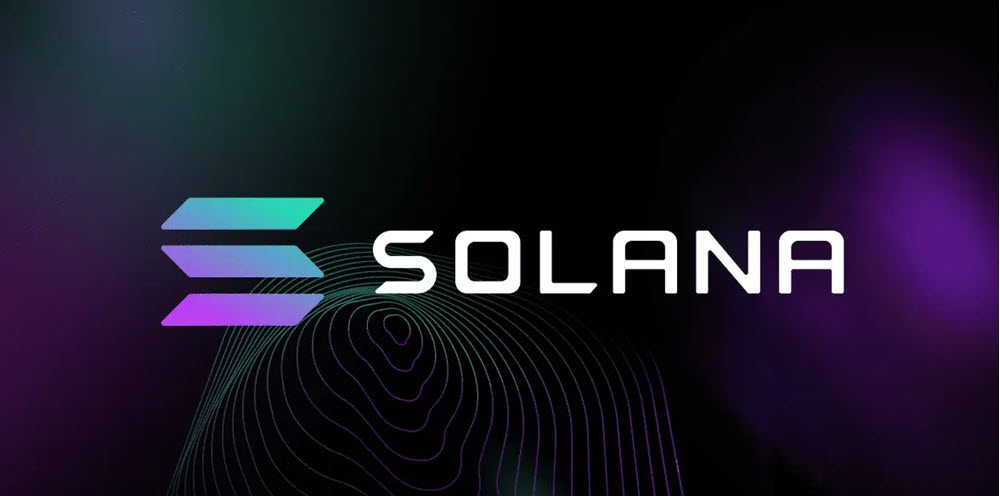Solana
Contents
Solana is a high-performance blockchain platform that claims to revolutionize the way we perceive decentralized technologies. In this article, we will explore the basic facts about Solana, its underlying technology, its potential uses, and why it has become popular.

What is Solana?
Solana is an open-source blockchain project developed by the Solana Foundation. The platform was conceived by former Qualcomm, Intel, and Dropbox engineers in late 2017. It was built to support decentralized apps (DApps) and crypto-currencies, aiming to improve blockchain scalability without compromising security or decentralization.
The native cryptocurrency of the Solana blockchain is SOL.
Short Facts About Solana
Original authors: Anatoly Yakovenko and Raj Gokal
White paper: https://solana.com/solana-whitepaper.pdf
Code repository: https://github.com/solana-labs/solana
Developer: Solana Labs & Solana Foundation
License: Apache 2.0
Native cryptocurrency: SOL
Underlying Technology: Proof-of-History
Solana’s uniqueness comes from its consensus algorithm, known as Proof-of-History (PoH), which differentiates it from other blockchains. PoH, devised by Solana’s founder Anatoly Yakovenko, is a decentralized clock that helps to secure the network and improve its overall efficiency.
Sequential processing confirms time in most blockchains, which can slow down the network. However, Solana’s PoH enables transactions to be processed in parallel, drastically improving speed and efficiency. Solana can handle up to 65,000 transactions per second, making it one of the fastest blockchains in the world.
The Uselfulness of Solana
Solana’s fast and secure blockchain is designed to support a multitude of applications in various sectors. One of the most notable uses of Solana is in decentralized finance (DeFi). It can handle large volumes of transactions, making it ideal for DeFi applications. Solana also has potential applications in gaming, supply chain, and digital identity verification.
Additionally, Solana’s low transaction costs make micropayments viable, opening up possibilities for pay-per-use or micro-subscription business models. For instance, media companies could charge small fees for article views or video plays, potentially disrupting the current advertisement-driven revenue models.
History of Solana and SOL
Solana Labs
Solana Labs was founded by Anatoly Yakovenko and Raj Gokal in 2018.
Launch
Solana was launched by Solana Labs in 2020.
Technical Issues
Solana has experienced several major outages and was subjected to a serious hack. The Solana blockchain was designed to handle heavy traffic, but on several occasions, a heavy transaction load has brough the network down. One notable example is the 17 hour long outage that started on September 14, 2021, when a transaction surge resulted in the networking forking, and validators no longer aggreed on the state of the network. On the 1st of May, an outage caused by bots lasted for roughly seven hours. On the last day of the month, a bug related to how the blockchain handles offline transaction brough the network down for about 4.5 hours.
The hack occurred on August 3, 2022, when over 9,200 Solana wallets were hacked and approximately $8 millions were moved to four Solana wallets. According to the Solana Foundation, the hack was possible due to a volnurability in digital wallet software from Slope Finance.
Legal Issues
In 2022, a class action lawsuit was filed against Solana in the United States, alleging it was selling unregistered securities and had been misleading investors about the number of tokens.
The U.S. Securities and Exchange Commission (SEC) filed a lawsuit against a cryptocurrency exchange (not against Solana) in which they alleged that SOL should be regulated as a security.
Various milestones
- In June 2021, Solana Labs sold SOL valued at 314 million USD to a group of funds led by Andreessen Horowitz and Polychain Capital.
- Since April 2023, the Solana Labs subsidiary Solana Mobile has been selling a special smartphone that comes with several Solana apps preinstalled. The phone, which is an Android, is called Solana Saga.
- In September 2023, the payment processors Visa, Worldpay, and Nuvei announced that they had added support for the Solana blockchain to send payments to merchants using the stablecoin USDC.
Market Value of SOL
2020
Solana was launched in 2020. The first block was created on March 16.
2021
In November 2021, the total market capitalization for SOL reached 74 billion USD, and the SOL was trading at just below $260. In 2021, market interest in NFTs was strong, and this helped boost interest in the Solana blockchain and the SOL.
2022
By January 2022, the total market capitalization for SOL was circa 55 billion USD. Before the year was over, it had fallen to 3 billion USD, largely as a result of the bankruptcy of the Bahamas-based cryptocurrency exchange FTX, which began in November 2022.
2023
The year 2023 was marked by a general rise of the cryptocurrency market, and this helped propell the market cap of SOL up to 7 billion USD by mid-March. On June 11, the market value of the SOL dropped by almost 30% in one day as the U.S. SEC announced a law suit that involved several cryptocurrencies, including the SOL. Several major exchanges sold off their holdings of SOL, and Robinhood even delisted the SOL and other tokens named in the SEC lawsuit.
The Future of Solana
Solana offers a promising solution to some of the most pressing issues in blockchain technology: scalability and efficiency. While it’s still early days for this project, Solana’s strong technological foundation and growing ecosystem signify its potential. The team behind Solana is currently building partnerships with major businesses and other blockchain projects. For instance, Serum, a decentralized exchange, has opted to build on Solana due to its high-speed, low-cost transactions. These partnerships could greatly increase the adoption of Solana.
Solana’s high speed, scalability, and low transaction costs give it potential to become a major player in the blockchain industry. As DeFi continues to grow, we could see more DeFi applications choosing Solana over other blockchains due to its superior performance. Still, it is not difficult to understand why Solana´s turbulent past, including the outages, is making many investors and decision makers hesitant to put their faith in Solana and SOL.